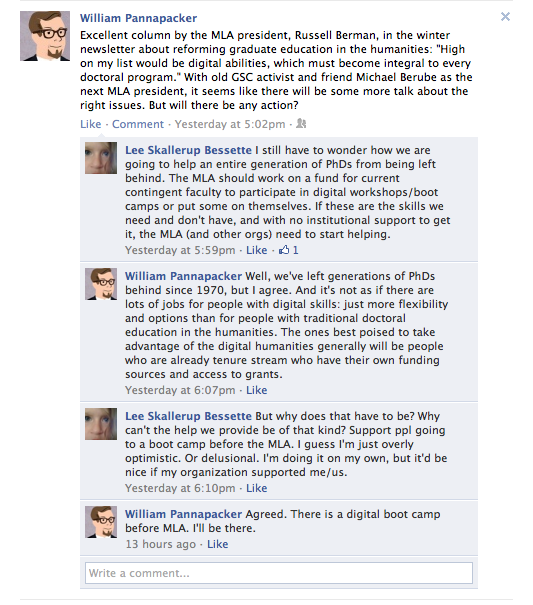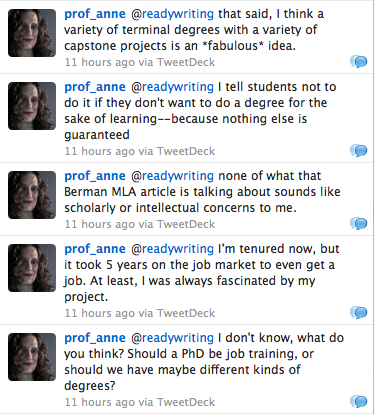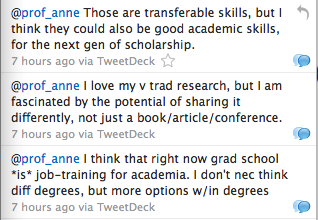You have /5 articles left.
Sign up for a free account or log in.
On November 17, 2011, the MLA President, Russell Berman, published a statement, Reforming Doctoral Programs: The Sooner, The Better. He outlines how Doctoral programs in the Humanities can and should re-calibrate to best position their graduates for an evolving job market (i.e. outside of higher education). I didn’t realize that Humanities PhD graduates hold twice as much debt as those who attain PhDs in the Sciences (because I wasn’t depressed enough). He also talks about bridging the gap between the academic work we do and the public at large.
William Pannapacker, however, zeros in on perhaps the most interesting (and ultimately controversial) recommendations:

As I put in my comments, I worry about the lost generation(s) of academics, those of us who came up through traditional PhD programs and don’t have either the support (institutional or otherwise) to develop these new digital skills. Roger Whitson, on his blog, makes a very similar recommendation to graduate students. But, again, what about aspiring faculty who are no longer in graduate school, working on a contingent basis, often outside of their area of expertise, and just as often without any funding or support for professional development. I find it deeply ironic and disturbing that, as Pannapacker puts it, it will be those who are already on the tenure-track who will benefit from new professional development and other opportunities.
But there is still a great deal of resistance to this kind of “training” for graduate students (or even aspiring faculty). I had retweeted the MLA statement and got the following response:

We come up again this tension between “job training” and “academic pursuits.” Why must these two elements be mutually exclusive? Why can’t we start to admit (and then imagine) what the possibilities are for those of us who are interested in jobs off the tenure-track? Or, that perhaps the direction of scholarship isn’t just about traditional book/article/conference presentation anymore? And that that isn’t a bad thing? Oh, wait, we already are.
Here’s what I tweeted in response:

With the Occupy MLA “movement” (ok, Twitter account), as well as other occupy movements within higher education, there is clearly a growing dissatisfaction (understatement) with the current direction of higher education, and not just from the perspective of the students. I hope that the “lost generation” of PhDs can get together and occupy higher education but also have the opportunity to take advantage of the changing landscape.

